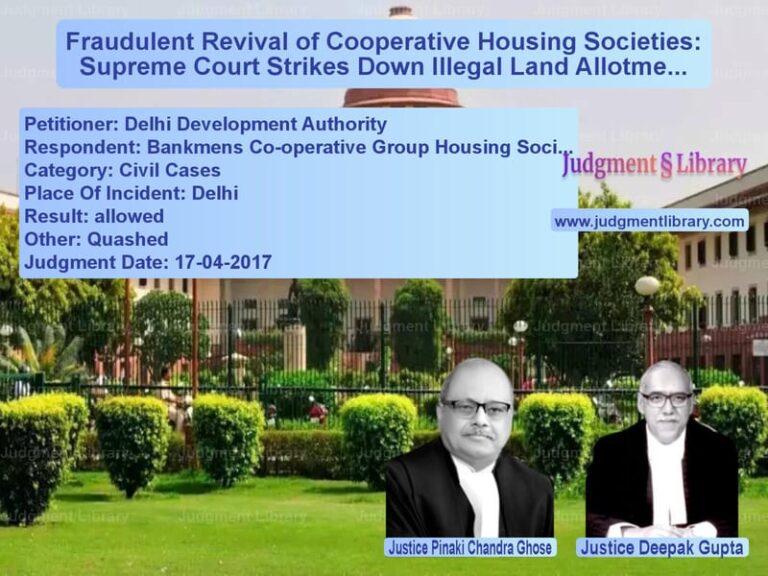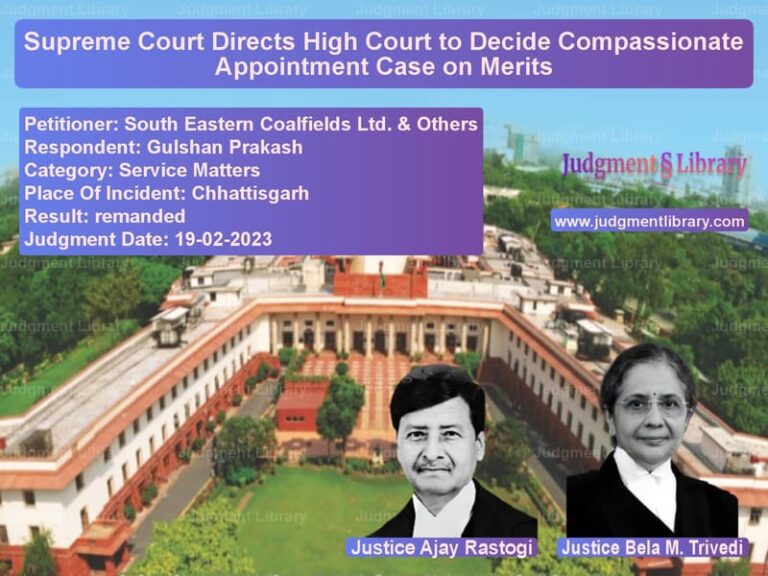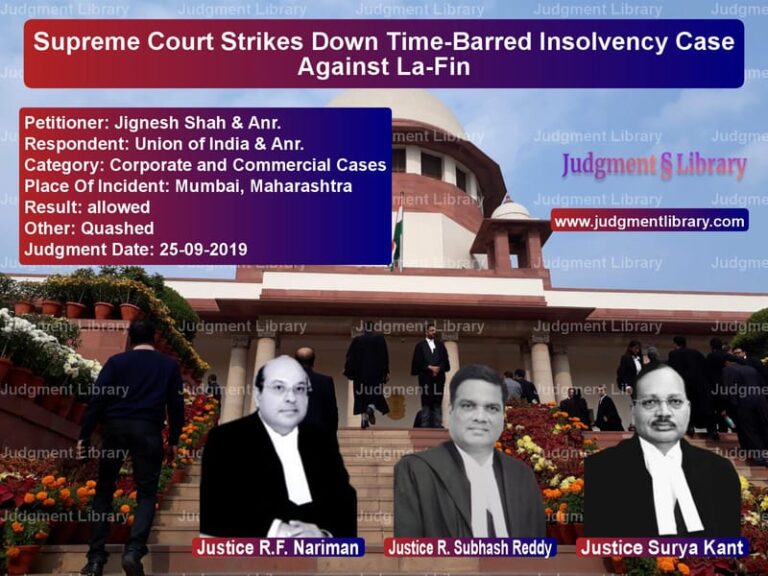Supreme Court Rules on Tribunal Appointments: Contempt Petition Converted to Interlocutory Application
The case of Advocate Association Bengaluru vs. Anoop Kumar Mendiratta & Others revolved around the delay in appointments to the Income Tax Appellate Tribunal (ITAT). The Supreme Court ruled that while there was a lapse in timely appointments, contempt proceedings were not warranted and instead directed the Union Government to complete the appointment process expeditiously.
Background of the Case
On July 6, 2018, the government issued an advertisement for 37 vacant posts in ITAT, including 21 Judicial Members and 16 Accountant Members. The Search-cum-Selection Committee (SCSC) chaired by Supreme Court Judge A.M. Khanwilkar recommended 41 candidates (28 in the main list and 13 in the waitlist). The recommendations were forwarded to the Appointments Committee of the Cabinet (ACC) on October 16, 2019.
The ACC approved 22 candidates—16 from the main list and 6 from the waitlist—on September 11, 2021, and October 1, 2021. However, 19 candidates from the recommended list remained unappointed, leading to 38 vacant positions due to additional retirements.
On December 16, 2021, the Supreme Court issued notice to the government, directing them to expedite the appointments. The failure to act led to the present contempt petition.
Key Legal Issues
- Whether the delay in appointments violated the Supreme Court’s directives.
- Whether the government’s selective approval of candidates from the waitlist over main-list candidates was arbitrary.
- Whether subsequent intelligence reports invalidated the SCSC recommendations.
- Whether contempt proceedings were necessary for non-compliance.
Arguments Presented
Petitioner’s Arguments (Advocate Association Bengaluru)
- The government failed to appoint 19 recommended candidates, despite Supreme Court directives.
- Appointments were selectively made from both the main list and the waitlist without a transparent justification.
- Additional reports used to disqualify candidates were not presented to the SCSC for reconsideration.
- The government’s inaction resulted in 38 vacancies, affecting the functioning of ITAT.
Respondents’ Arguments (Union of India)
- The ACC had discretionary power to review SCSC recommendations.
- The appointment process was delayed due to adverse reports from the Intelligence Bureau (IB) and medical fitness concerns.
- The delay was procedural, not intentional, and did not warrant contempt proceedings.
- Future appointments would ensure compliance with judicial recommendations.
Supreme Court’s Observations
The Supreme Court reviewed the appointment files and observed:
- Transparency was lacking: The ACC’s selection process lacked transparency as it deviated from the SCSC’s recommendations without clear reasoning.
- Post-selection intelligence reports were unfair: Reports obtained after SCSC recommendations were used to justify non-appointments without allowing candidates to respond.
- SCSC must be consulted on adverse reports: Any new intelligence inputs should be placed before the SCSC for reconsideration.
- Judicial intervention in appointment delays: Delays in tribunal appointments affect judicial efficiency and must be addressed promptly.
Key Excerpts from the Judgment
The Supreme Court ruled:
“The feedback in the appointment file lacks transparency. If any material adverse reports exist post-recommendation, such reports should be placed before the SCSC to ensure fairness in the selection process.”
The Court further stated:
“It is imperative that tribunal vacancies are filled in a time-bound manner. Government delays impact the efficiency of justice and must be addressed with urgency.”
Final Verdict
The Supreme Court issued the following directives:
- The contempt petition was converted into an interlocutory application as punitive action was deemed unnecessary.
- The government was directed to present adverse reports before the SCSC for review.
- Pending ITAT vacancies must be filled to ensure smooth judicial operations.
- The matter was scheduled for review on July 12, 2022, for compliance updates.
Outcome: The ruling emphasized the need for transparent and efficient appointment processes while directing corrective measures rather than punitive action.
Petitioner Name: Advocate Association Bengaluru.Respondent Name: Anoop Kumar Mendiratta & Others.Judgment By: Justice Dhananjaya Y Chandrachud, Justice Pamidighantam Sri Narasimha.Place Of Incident: India.Judgment Date: 17-05-2022.
Don’t miss out on the full details! Download the complete judgment in PDF format below and gain valuable insights instantly!
Download Judgment: advocate-association-vs-anoop-kumar-mendirat-supreme-court-of-india-judgment-dated-17-05-2022.pdf
Directly Download Judgment: Directly download this Judgment
See all petitions in Recruitment Policies
See all petitions in Public Sector Employees
See all petitions in Judgment by Dhananjaya Y Chandrachud
See all petitions in Judgment by P.S. Narasimha
See all petitions in partially allowed
See all petitions in Modified
See all petitions in supreme court of India judgments May 2022
See all petitions in 2022 judgments
See all posts in Service Matters Category
See all allowed petitions in Service Matters Category
See all Dismissed petitions in Service Matters Category
See all partially allowed petitions in Service Matters Category







